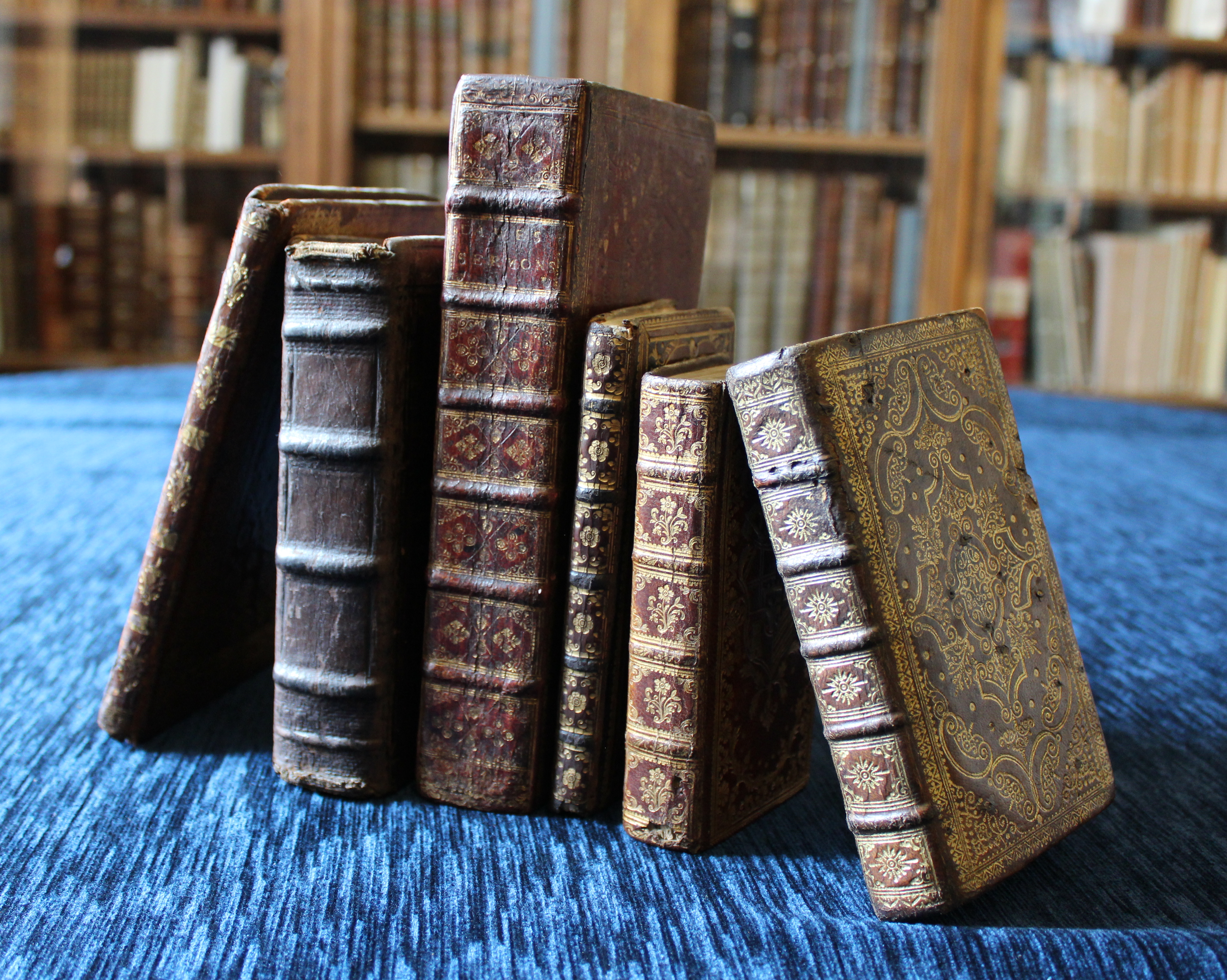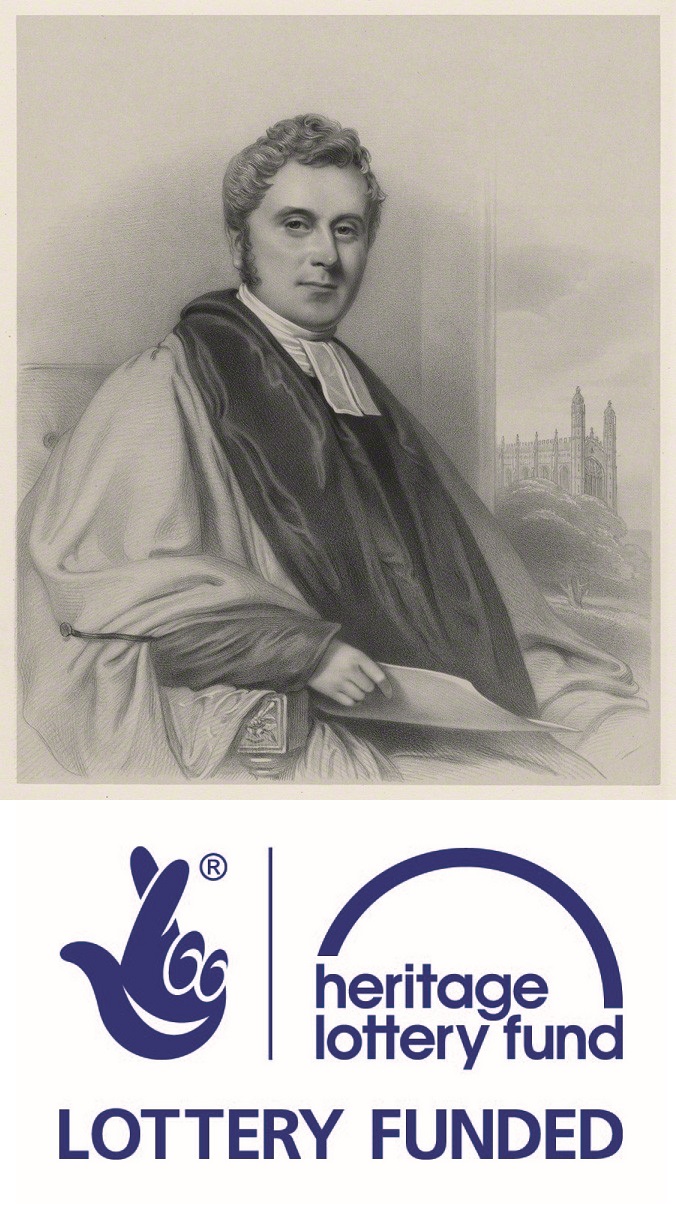Jacob Bryant (1715-1804)
Jacob Bryant was a Fellow of King’s, an eminent classicist, mythologist and erudite collector. He was tutor to the Marquess of Blandford, and later served as secretary to the third Duke of Marlborough.
His best known work is A New System: or, An Analysis of Ancient Mythology, published in three volumes between 1774 and 1776. His bequest to King’s College Library was large, the most notable items being the 147 incunabula–books printed before 1501.
George Thackeray (1777-1850)
George Thackeray was elected Provost of King’s College in 1814. The death of his second wife, Mary Ann, giving birth to his only child, Mary Ann Elizabeth, cast a shadow over his life.
He ran the affairs of the College with great ability, but sought consolation in his book collecting. His large library, covering a wide variety of topics, came to King’s in two parts. The ‘black-letter’ or Gothic-type theological books (some 160 books) he bequeathed to the College on his death.
His daughter, Mary Ann Elizabeth Thackeray, gave to the College most of the remainder of his collection (a further 3,000 volumes), which includes many literary works and a handsome collection of natural history books that are often hand-coloured and bound in magnificent gold-tooled leather cases.
Arthur Henry Mann (1850-1929)
In his youth A.H. Mann was a chorister and later assistant organist of Norwich Cathedral. Between 1876 and 1929 Mann was the organist and choir master of King’s College Chapel.
During those 53 years, Mann did a great deal to make King’s College Choir what it is today. He left many hymn tunes, eighteenth-century works on music, and song collections to the Rowe Music Library.
John Maynard Keynes (1883-1946)
Keynes was one of the most famous economists, thinkers, and financiers of the twentieth century, after whom a whole school of economics–the Keynesian School–is named.
Keynes was an undergraduate at King’s and a Fellow from 1909 until his death. He was a Bursar of the College from 1919, and First Bursar from 1924. His personal papers form part of the College Archives.
His most notable works are The Economic Consequences of the Peace (1919), A Treatise on Money (1930), and The General Theory of Employment, Interest and Money (1935-36).
He married the ballerina Lydia Lopokova, and was a prominent member of the Bloomsbury Group, a social circle that included some of the foremost artists, novelists and intellectuals of the first half of the twentieth century. Keynes collected pictures, manuscripts and books, which were bequeathed to King’s College Library in 1946, and formed the Keynes Collection.
The pictures include many Impressionist and modern paintings. Among the manuscripts collected are Isaac Newton’s papers. The book collection (some 4,500 volumes) focused on the intellectual history of Western Europe in the areas of philosophy, science, and literature.
For further information on J.M. Keynes, see John Maynard Keynes: A Biography, vols. 1-3, by Robert Skidelsky, 1983-2001; Maynard Keynes: An Economist’s Biography, by D.E. Moggridge, 1992.
Arthur Cole (1883-1968)
Arthur Cole studied Classics at King’s and was later elected an Honorary Fellow. He was considered one of the most successful conveyancers at Lincoln’s Inn, of which he became a Bencher.
Cole was a great benefactor of both Lincoln’s Inn Library and King’s College Library. To the latter he endowed, over forty years, a fine music collection, while preferring to remain an anonymous donor.
When his solicitor friend Louis Thompson Rowe died in 1927, Cole purchased his music collection, and donated it to King’s College. Since 1928, it has been known as The Rowe Music Library. It is particularly rich in printed music of the eighteenth century. Among the many rarities are sixteenth- and seventeenth-century part books.
Donald Howard Beves (1896-1961)
Having served in the First World War, Beves came to King’s in 1919, where he was tutor for sixteen years. From 1926 onwards, he taught Modern Languages, and was active in dramatic activities.
Beves was a collector of silver, Stuart and Georgian glass, which he bequeathed to the Fitzwilliam Museum, and of books, which he left to the College. This collection is particularly strong in French books from the Renaissance onwards.
More recent donors include:
- George Rylands (1902-1999)
- George Salt (1903-2003)
- John Bury (1917-2017)
- Dorothy Warren (d. 1992)
- David Gilson

